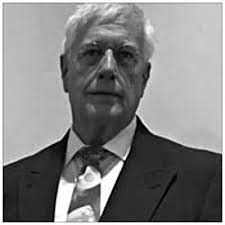[ Editor’s note: The UK Telegraph has published a story today about a coup in Damascus that has Syrian officials reeling in disbelief.
Sources next to President Assad have responded to the story in today’s UK Telegraph reporting the arrest of Ali Mamlouk. They deny it entirely. Mamlouk’s friends and family members are shocked at the report citing Syria’s security chief as plotting with Al Nusra against President Assad.
Telegraph correspondent Ruth Sherlock is identified as an MI6 asset and longtime associate of Franklin Lamb. Staff at the Dama Rose hotel still talk about her, ” a bitch on wheels” or the Arabic equivalent. Sherlock is said to act as an intermediary between British intelligence and Al Nusra/Al Qaeda militants, according to sources in Damascus. From the Israeli Haaretz website:
Ruth Sherlock is a freelance journalist and an intern for Haaretz.com
Highest level sources in Syria are disturbed at the Telegraph story. The UK Telegraph has recently applied for offices in Damascus and are likely to be met with some resistance. We have solid confirmations that the Telegraph is wrong in their story — that Mamlouk is at his job today and that there was no coup attempt.
VT spoke with a family friend and coworkers of Mamlouk this morning, and they were very disturbed at the story, which they see as a plant by Turkish intelligence. Syrian sources also point out other flaws in the article involving not only the relationship with Iran, but the fate of Rustum Ghazaleh who died of complications related to diabetes… Gordon Duff ]
From the UK Telegraph: Bashar al-Assad’s spy chief arrested over Syria coup plot
Ali Mamlouk, the head of the country’s National Security Bureau, has been removed as the regime of Bashar al-Assad begins to show divisions over the role of Iran

Gordon Duff posted articles on VT from 2008 to 2022. He is a Marine combat veteran of the Vietnam War. A disabled veteran, he worked on veterans and POW issues for decades.
Gordon is an accredited diplomat and is generally accepted as one of the top global intelligence specialists. He manages the world’s largest private intelligence organization and regularly consults with governments challenged by security issues.
Duff has traveled extensively, is published around the world, and is a regular guest on TV and radio in more than “several” countries. He is also a trained chef, wine enthusiast, avid motorcyclist, and gunsmith specializing in historical weapons and restoration. Business experience and interests are in energy and defense technology.
ATTENTION READERS
We See The World From All Sides and Want YOU To Be Fully InformedIn fact, intentional disinformation is a disgraceful scourge in media today. So to assuage any possible errant incorrect information posted herein, we strongly encourage you to seek corroboration from other non-VT sources before forming an educated opinion.
About VT - Policies & Disclosures - Comment Policy



